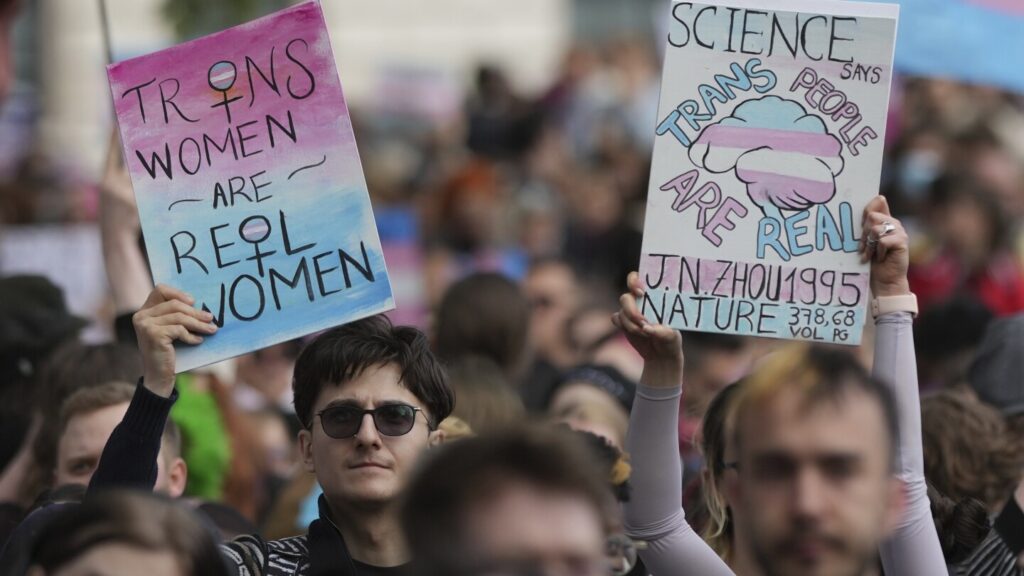
LONDON — Transgender women will be prohibited from participating in women’s soccer teams in England following a landmark ruling by the U.K. Supreme Court last month, as announced by the sport’s governing body on Thursday.
Breaking: Supreme Court Decision Shakes Up Sports
The Football Association (FA) declared its decision to amend rules that previously allowed transgender athletes to compete on women’s teams if they maintained reduced testosterone levels. This significant policy change mirrors a similar move by the Scottish Football Association just last week.
The ruling from the U.K.’s highest court, issued two weeks ago, redefined a woman for anti-discrimination purposes as someone born biologically female. This decision has sparked widespread debate and controversy.
Immediate Impact on Transgender Athletes
While some feminist groups have welcomed the ruling, it has faced strong condemnation from trans-rights organizations, which argue that it will have far-reaching and detrimental effects on daily life for transgender individuals.
“We understand that this will be difficult for people who simply want to play the game they love in the gender by which they identify,” the FA stated, “and we are contacting the registered transgender women currently playing to explain the changes and how they can continue to stay involved in the game.”
Key Details Emerge
The FA emphasized its longstanding policy of making soccer accessible to a wide audience but acknowledged that changes would be necessary in response to shifts in law, science, or grassroots football operations.
It remains unclear how many players will be directly affected by the new policy, which is set to take effect on June 1.
Industry Response and Public Reaction
The announcement comes amid a broader conversation about gender and sports, raising questions about inclusion and fairness. The head of the Equality and Human Rights Commission noted that the ruling also extends to other areas, such as access to women’s toilets and hospital wards.
By the Numbers
June 1: Date the new policy takes effect, impacting transgender women in English soccer.
2 weeks: Time since the U.K. Supreme Court ruling was issued.
What Comes Next
The timing is particularly significant because it aligns with ongoing discussions about gender identity in sports worldwide. As the policy is implemented, the FA plans to provide guidance and support to affected players, ensuring they have opportunities to remain engaged with the sport.
Background Context
According to sources familiar with the situation, this development builds on previous debates about the inclusion of transgender athletes in competitive sports. The move represents a significant shift from prior policies that were more inclusive of transgender players.
Expert Analysis
Meanwhile, industry experts warn that this decision could set a precedent for other sports organizations grappling with similar issues. The debate over balancing fairness and inclusion in sports is expected to continue, with potential legal challenges and policy revisions on the horizon.
Regional Implications
The FA’s policy change not only affects English soccer but also sets a tone for sports governance across the U.K. and potentially beyond. As other governing bodies observe the outcomes, they may reconsider their own policies regarding transgender athletes.
As the situation evolves, stakeholders in the sports community and advocacy groups will closely monitor the implications of this ruling, both on and off the field.




